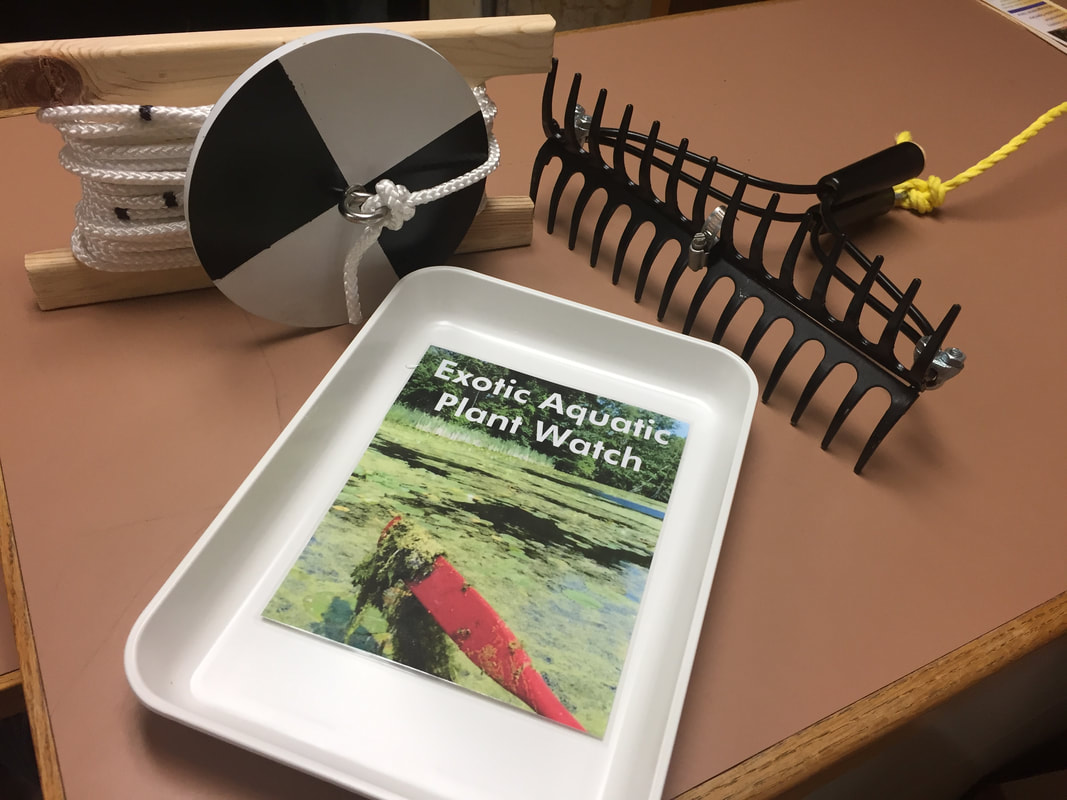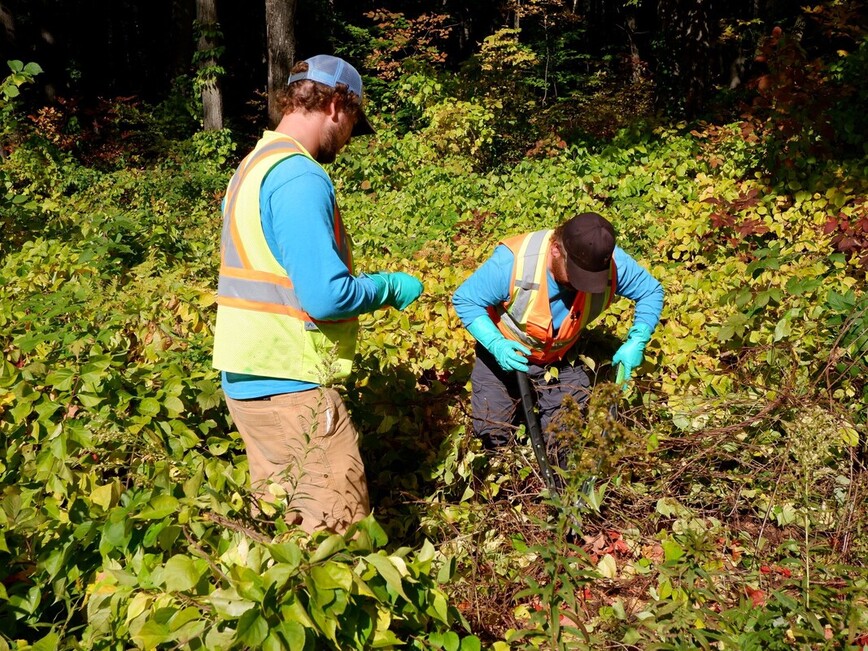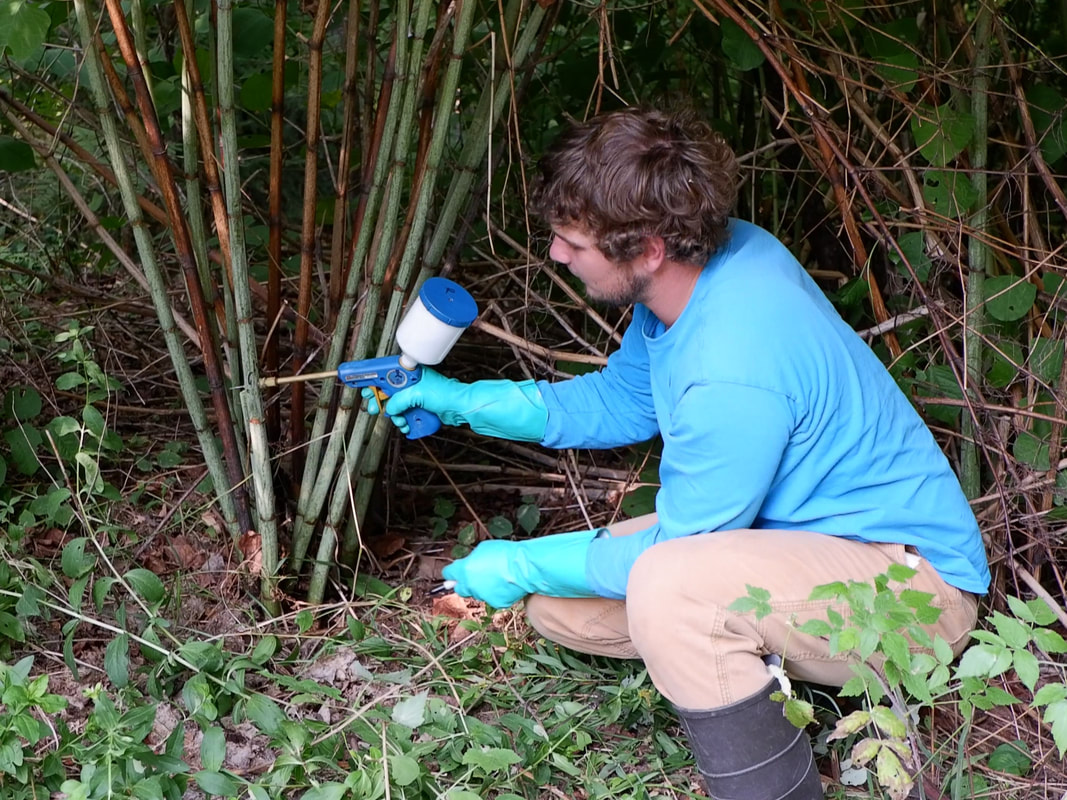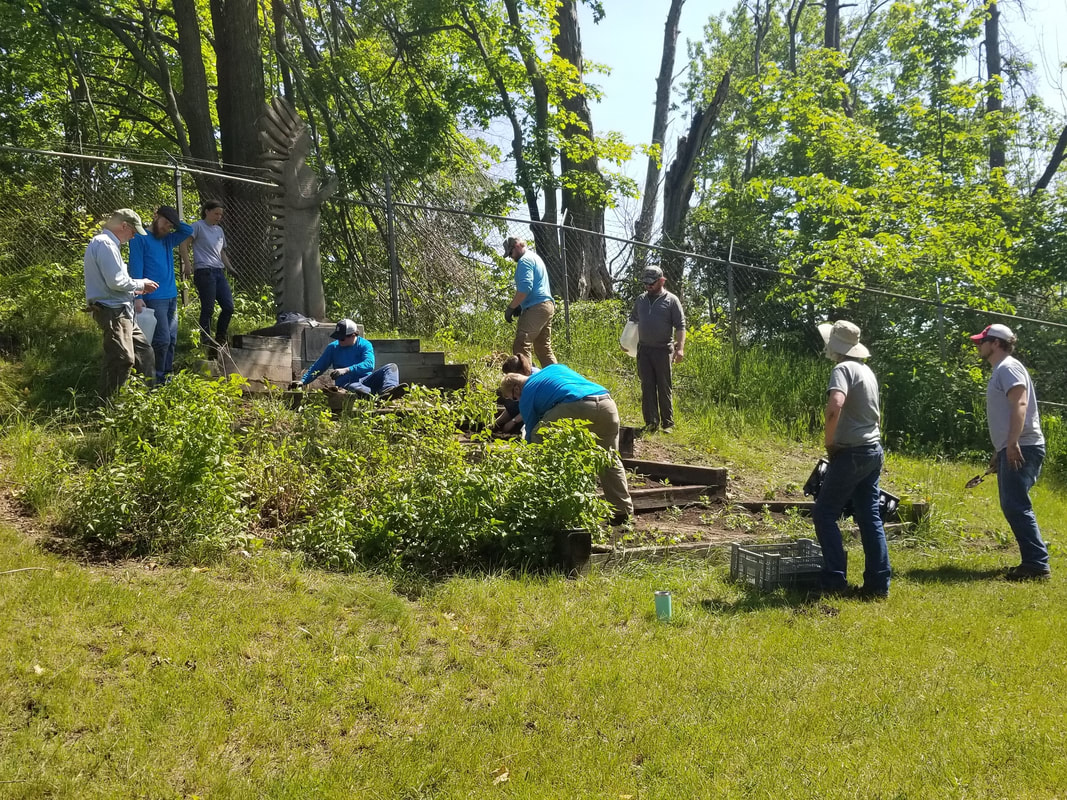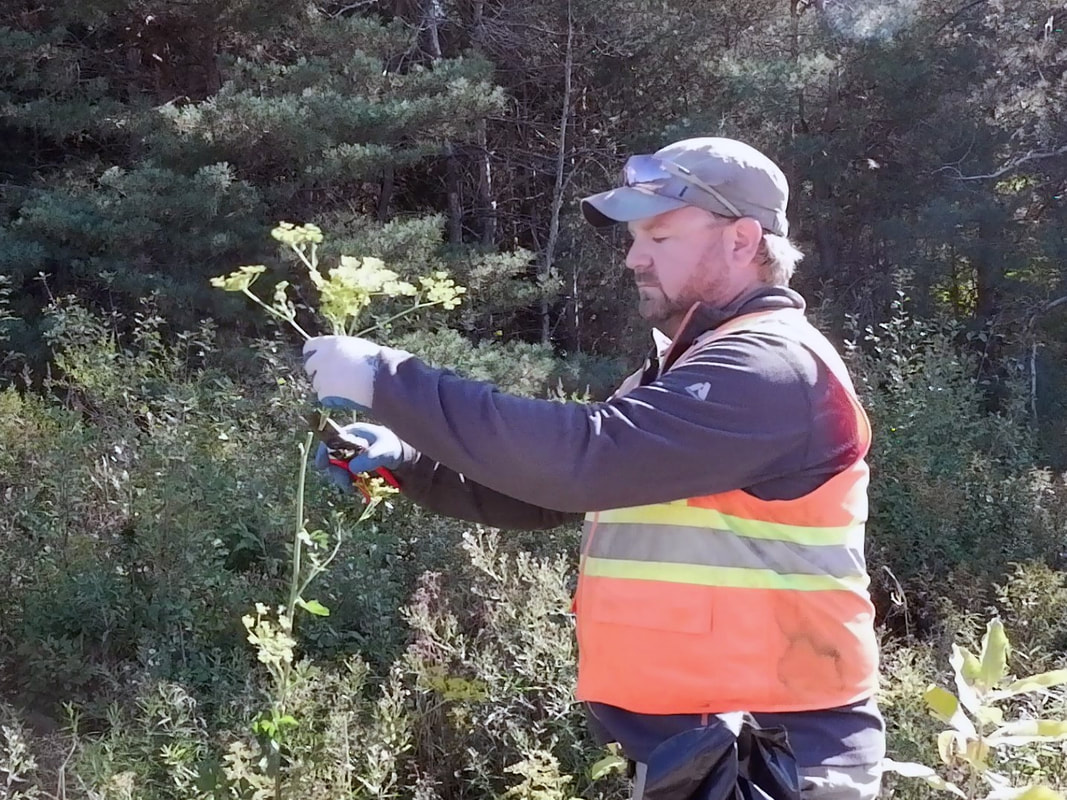Engaging With ORV Enthusiasts

Addressing invasive species along recreational trails has long been a priority for NCCISMA. This region is a destination for ORV users because of its many great trails. Maintaining quality trails and healthy native ecology are both critical to this area, for keeping businesses that depend on this area being a destination for ORV users, and also for hunting, fishing, and wildlife viewing; as well as to maintain the expected quality of life for area residents. The overarching goal of this project to build recognition within the ORV community of the threat invasive species pose to the forest resource they enjoy and value, and to inspire new practices that will slow the spread of invasives to and from recreational trails.
A large component of the grant will be surveying 527 linear miles of ORV trails for invasive species. Survey results will be used to create educational signs to advise trail users of invasive species they may encounter, and ways to prevent carrying them home, or to other trails. Outreach is another big component of this project, and will include trivia competitions at local bars and a poker run. Both will feature awesome prizes!
Funding for this project is provided by the Michigan Invasive Species Grant Program (MISGP).
A large component of the grant will be surveying 527 linear miles of ORV trails for invasive species. Survey results will be used to create educational signs to advise trail users of invasive species they may encounter, and ways to prevent carrying them home, or to other trails. Outreach is another big component of this project, and will include trivia competitions at local bars and a poker run. Both will feature awesome prizes!
Funding for this project is provided by the Michigan Invasive Species Grant Program (MISGP).
Muskegon River Watershed Project
|
NCCISMA is partnering the the Muskegon River Watershed Assembly (MRWA) to control invasive species in the Muskegon River Watershed. A major component of this project is promoting the Exotic Aquatic Plant Watch (EAPW). The EAPW trains participants to monitor their lakes for aquatic invasive plants. Those who are interested in learning more are encouraged to attend a recruitment even on June 3 (link events). NCCISMA will be providing free sampling equipment to lakes that enroll. Contact Emma Costantino for more information.
Another important component of this grant is preserving and maintain the riparian areas along the Muskegon River. NCCISMA staff surveyed 548 acres of property along the Muskegon River for high priority invasive species and provided invasive species management plans to land managers. Funding for this project is provided by the Michigan Invasive Species Grant Program (MISGP). |
Good Neighbor Authority
NCCISMA partners with the U.S. Forest Service to survey and control invasive species in the Huron-Manistee National Forest.
including garlic mustard, Phragmites, and Oriental bittersweet.
This summer, NCCISMA will survey for invasive species along 60 acres of the Little Manistee River in Lake and Mason County.
Funding for this project is provided by the revenue from timber sales on U.S. Forest Service land?
including garlic mustard, Phragmites, and Oriental bittersweet.
This summer, NCCISMA will survey for invasive species along 60 acres of the Little Manistee River in Lake and Mason County.
Funding for this project is provided by the revenue from timber sales on U.S. Forest Service land?
Stopping Spread from Transportation Corridors
Parks as a Showplace for Restoration and Control
|
continue the work that they have been doing over the past several years, to remove invasive plants from area public parks and replace them with native species. Parks that have been the subject of previous work by NCCISMA include Lake City Parks, Big Rapids Parks and Mecosta County Parks
will allow for monitoring and maintenance of the work in the parks that has thus far been accomplished by NCCISMA, and will further allow for expansion of the program, to include invasive species control work at City of Cadillac and City of Ludington Parks, including restoration planting and installation of interpretive signs at Cartier Park in Ludington Monitor and retreatment at previously treated control sites
Develop conservation plan for Conservation Park in Pere Marquette Township Coordinate with township and other partners to control invasives like garlic mustard and autumn olive Cartier Park partner with AFFEW workdays restoration planting and interpretive signage Funding for this project is from the Great Lakes Restoration Initiative through the U.S. Forest Service. |
Prioritizing Control to Preserve Vulnerable Species
|
With 25% of the land in NCCISMA’s six county coverage area being state and federal natural areas, the ecological assets here are well protected from degradation due to development and other land use that destroy habitats. However, since these areas are used by people for recreation, invasions by unwanted plant species are likely, and this poses a real threat to these ecosystems. With this project NCCISMA will access and utilize Michigan Natural Features Inventory (MNFI) data to strategize survey work, focusing surveys where MNFI element occurrences coincide with likely avenues of spread. Infestations of invasive plants found in high value habitats or areas with known occurrences of threatened, endangered or sensitive species (TES) will be targeted for control. In order to better prioritize areas for invasive species control, NCCISMA will target high value habitat areas for invasive species surveys. The information gathered will be used to plan future invasive control work. Overlay MISIN and MNFI data to map direct control use MNFI data to target high value habitats for IS survey Survey 2,000 acres of public land use data to plan future control work Outreach is another component of this grant. NCCISMA staff will visit local schools to share with students how invasive species threaten our natural ecosystems, and potentially harm threatened and endangered species. Funding for this project is from the Great Lakes Restoration Initiative through the U.S. Forest Service. |
Survey and Control of Wild Parsnip
|
Wild parsnip is a high priority species that poses a safety threat to humans. Exposure to the sap of wild parsnip can cause severe burns to the skin when exposed to sun light. Wild parsnip was first reported in the region along the White Pine Trail in Osceola County in 2015 and has since spread to nearby road crossings. NCCISMA has been working for several year with various grants to stop this regional source population from continuing to spread.
This year NCCISMA will survey for wild parsnip within three miles of known source population (345 linear miles) as well as preforming spot checks at reported sites. NCCISMA will also perform 208 acres of wild parsnip control in Osceola, Mecosta, and Wexford. Funding for this project is provided by the Michigan Invasive Species Grant Program (MISGP). |
Survey and Control of European Frogbit
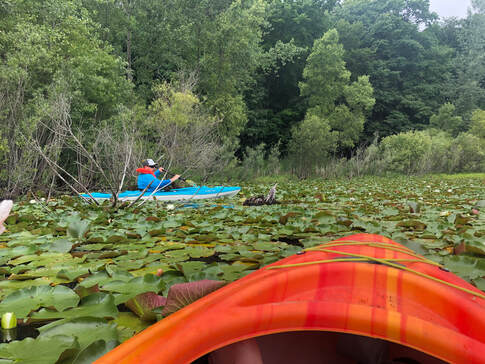
European frogbit (EFB) is a state watchlist species that was discovered last year on the Lincoln River in Mason County. This invasive species is a free-floating plant which forms dense mats on the surface of the water. It alters wildlife habitat and impedes boat movement.
NCCISMA will be taking steps to control European frogbit by contracting? spring and fall control in the area where it was previously discovered. To discover if the plant has spread, they will also survey 20 lakes for EFB over the next two years.
Funding for this project is provided by...
NCCISMA will be taking steps to control European frogbit by contracting? spring and fall control in the area where it was previously discovered. To discover if the plant has spread, they will also survey 20 lakes for EFB over the next two years.
Funding for this project is provided by...
|
Subscribe to NCCISMA's Quarterly Newsletter!
|
401 N Lake Street
Cadillac, MI 49601 |
